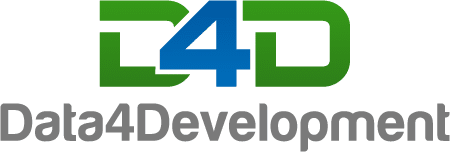The first open tea for the year 2020 was hosted by Save the Children Nederland. This was well represented by various development organizations. To name a few we had team members from Child Helpline International, RainForest Alliance, Cordaid, Simavi, Ministerie van Buitenlandse Zaken, IUCN NL, Aqua for all, Aids Fonds and more. We started with a brief check before we moved on to the presentations after which we had had open discussion over drinks. The overarching theme across the presentations and discussion was the use of data and inclusivity.
The first presentation titled “Lessons from Implementing a New MIS” from Nikolaos Koufos. Nikolaos shared Good practices, challenges and lessons learned from SPARK’s experience over implementation of a Management Information System for KPI monitoring. The key success factors were keeping it simple and making determination of the KPIs inclusiveness and clear communication. The main challenges were diversity in KPI monitoring across programmes/ regions and trade off between assuring data quality and fulfilling internal/external KPI data requirements.
The second presentation Luca Genovese and Eva Korn from Save the Children Nederland was about the journey towards being a learning organisation. He shared about their approach four pillar approach that include learning from previous experiences, building on best practices, providing space for innovation in addition to using failure as a stepping stone to learning. Eva Korn described the workshops on data literacy lead by Save the Children Nederland together with Data4Development that started with a the visioning workshop, building a baseline of data literacy in the organization, two hands on workshops on data analysis and visualization. This culminated in a social Hackathon where the team from Save the Children Nederland spent half a day focusing on three data questions. The whole journey was designed with mindfulness ensuring that the workshops are inclusive for all team members despite their level of data literacy and ensuring they build skills to tackle basic data challenges. One of their main challenges was to involve colleagues to participate and to build on the momentum build to move this piece of work forward.
Jeaphianne van Rijn from Data4Development gave us a presentation titled ”A Day in the Life of a Data Scientist”. She gave us her first impression in the field of nonprofits from her perspective as a developer and data analyst. She spoke about her experience at a hospital in Utrecht where Nurses did not want to enter data until it was used. Then she walked us through her journey of going through organizations mentioned within published iati data. She found lots of duplicates and errors including problems with identifiers. The people who now publish in IATI actually make their own islands that are not connected to other organizations. The biggest learning from this presentation was that when there is motivation to improve data quality only when there is a feedback loop. Data has value when there’s use.
After an open discussion on data use and concluding that what doesn’t get measured with data does not get managed the participants spent more than an hour talking with each other over drinks. Many connections were made and viewpoints exchanged. Onwards to the next open tea.
